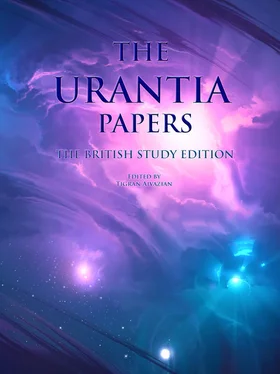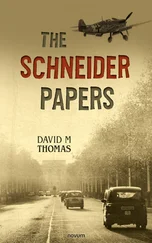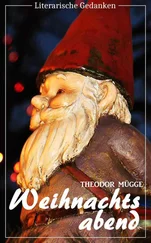immediately after, Note that Gabriel's appearance had taken place after the conception, to allow for freedom of will of both parents, but it happened immediately after the conception in order to prevent any danger to this child of destiny.
Notes to Paper № 123
chazan, A more accurate rendition of the Hebrew would have been “chazzan”.
books of the Law, In 1955 text: books of the law. Here and in the paragraph 5 below, the “Law” being spoken of is the Hebrew Torah, i.e. the first part of the Hebrew Scriptures which are traditionally divided into the Law, Prophets and Writings.
Psalms, Here the Writings (Hebrew kethuvim ) are called the “Psalms” by the name of the first book of this section of Hebrew Scriptures, according to many Hebrew MSS, though not that of Talmud (which places Ruth first) and some other early MSS which I have examined, such as The Leningrad Codex (B19A), which places Chronicles first.
INFORMATIONALFirst printing; Far to the east they could discern the Jordan valley and, far beyond, the rocky hills of Moab. Also to the south and the east ... — Punctuation and wording changes were rejected by the committee. The context for this sentence is the “panoramic view” from atop the Nazareth hill: Jesus and his father are standing on top of the hill and are moving their gaze from Mt. Carmel in the north-west around an arc to the north, east, south and west. Mt. Hermon is to their north, and from springs in its foothills near Dan (north-east of Nazareth) the Jordan valley extends to the Dead Sea in the south. Thus, as Jesus and Joseph follow the line of the river valley along the arc of their survey, as the Jordan approaches the Dead Sea, father and son “discern ... far beyond, the rocky hills of Moab.” This interpretation is further supported by the punctuation of the following sentence which does not read “Also, to the south and the east, ...” (suggesting a change in direction from the last reference), but rather, “Also to the south and the east, ...” which implies that the last referenced location (Moab) was in the same direction.
Notes to Paper № 126
Taanach, In 1955 text: Tannach. The corrected spelling is the standard transliteration of the name.
Notes to Paper № 130
seven different conceptions of space as it is conditioned by time, The first six of these conceptions correspond to n-dimensional space (1 ≤ n ≤ 6) and 1-dimensional time. The seventh conception corresponds to the 7-dimensional space and no time. These seven dimensions of space are the same as the seven dimensions of human type of personality as explained in 112:1.9. The perception of the seven dimensions of space is in principle achievable even on the material level of existence, despite the simplistic claim of human mind being “rigidly space-bound” in 12:5.5. There is no real contradiction between what the Perfector of Wisdom is teaching us in Paper 12 and what Jesus is teaching the Mithraic magician at Carthage, as long as we understand that the angelic teachings are usually very basic and intended for average or below average level of intellect, whereas Jesus is here addressing a highly advanced magician who may well have mastered both the finite and the absonite levels of reality (i.e. now perceives space in six dimensions) and he is here encouraged by Jesus to not stop there but to pursue on the way of mastery of the seventh dimension on the fourth, absolute level of reality.
the only thing man knows which can even partially transcend space is mind, This would directly contradict the statement at 12:5.5, if we do not take into account what was said in the previous note.
Notes to Paper № 133
associator, In 1955 text: associater. While the meaning of ‘associater’ is clear and that variant is found in a reference dating to 1616 in the OED, it is probably the result of a keystroke error because the common form, ‘associator’, is the unanimous usage elsewhere in the text. [Unlike other archaic English words occasionally used in The Urantia Book to convey unique meanings (e.g., inconcussible at 118:3.3 in the text) the ancient word-form ‘associater’ did not convey a meaning distinct from ‘associator’ and no such differentiation is apparent here.] The original spelling may have been caused by a typist’s inadvertent repetition of the ‘er’ pattern from sorter, but in any case, the committee chose to adopt the modern and consistently used form.
Notes to Paper № 134
sometime, In 1955 text: some time. Closed form “sometime”. See note for 60:3.20. “Sometime before Michael’s death in the flesh the fallen Lucifer’s associate, ...”
Notes to Paper № 135
near by, In 1955 text: near-by. All other instances of near by as an adverb are open; with one exception adjectives are hyphenated (near-by). Consistent usage would therefore support this change to the open form.
Notes to Paper № 139
good humour, According to Dr Meredith Justin Sprunger the original Papers stated that the apostle Nathaniel “had a good sense of humour for a Jew”, but after it was read the members of the Forum chuckled at this phrase. The next time they obtained this paper from the safe, they discovered the phrase “for a Jew” was deleted. I am assuming that this comment refers to this particular location as it seems to be the closest to providing just such a context.
Bartholomew, Note that this is the only mention of a Bartholomew in the Urantia Papers. Nathaniel was invited to be one of the apostles by Philip (137:2.6). In the synoptic gospels Nathaniel is always mentioned under the name Bartholomew as an associate of Philip (Matthew 10:3, Mark 3:18 and Luke 6:14). In the gospel of John we have Nathaniel, but no Bartholomew. The name “Bartholomew” is an anglicized form of the Aramaic “bar Tholmai” meaning “son of Tholmai”. It is possible that Nathaniel's father's name was Tholmai and not Bartholomew. However, I did not amend the text here because Dr Sadler is saying that “the manuscript was very clear that it was Bartholomew”.
Kerioth, In Hebrew ish-keriyoth means “a man of Kerioth”, hence the surname “Iscariot”.
Notes to Paper № 142
fathers and their children will love each other more, So says also Malachi 4:6: “And he shall turn the heart of the fathers to the children, and the heart of the children to their fathers, lest I come and smite the earth with a curse.”
Abraham and his brother left Ur, The fact of Nahor leaving Ur with Abraham (cf. Genesis 11:31) has been preserved only in the Samaritan Pentateuch, the Massoretic scribes having carefully deleted the reference to Abraham's brother Nahor from the Hebrew “received” text, gladly leaving him with the sun-worshippers in Ur.
Notes to Paper № 143
he never revealed it, This explains why the story in John 4:6-42 has no parallels in the Synoptics.
Notes to Paper № 145
Читать дальше






![Theresa Cheung - The Dream Dictionary from A to Z [Revised edition] - The Ultimate A–Z to Interpret the Secrets of Your Dreams](/books/692092/theresa-cheung-the-dream-dictionary-from-a-to-z-r-thumb.webp)





